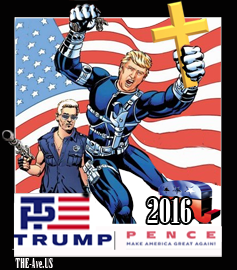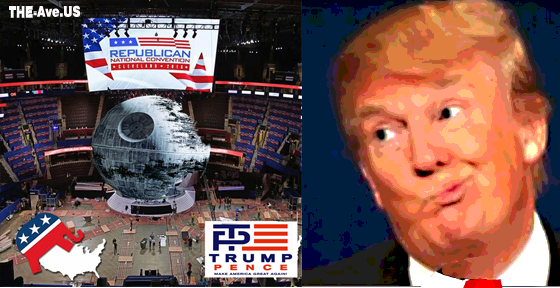 “Field-Marshal Hindenburg, the relic and symbol of the Hohenzollern Empire, now the Republic’s President, dissolved Parliament and appointed Heinrich Brüning Reichskanzler. Brüning ruled by decree, enforced a rigidly ‘deflationary’ policy, cut expenditure on social insurance, dismissed government employees en masse, reduced wages and salaries, and crushed small businessmen with taxes, thus aggravating the distress and the despair of all. In elections held on 14 September 1930, Hitler’s party, which had polled only 800,000 votes in 1928, won six and a half million votes; from the smallest party in the Reichstag it became the second largest.”
“Field-Marshal Hindenburg, the relic and symbol of the Hohenzollern Empire, now the Republic’s President, dissolved Parliament and appointed Heinrich Brüning Reichskanzler. Brüning ruled by decree, enforced a rigidly ‘deflationary’ policy, cut expenditure on social insurance, dismissed government employees en masse, reduced wages and salaries, and crushed small businessmen with taxes, thus aggravating the distress and the despair of all. In elections held on 14 September 1930, Hitler’s party, which had polled only 800,000 votes in 1928, won six and a half million votes; from the smallest party in the Reichstag it became the second largest.”
“The Social Democrats, who had for years ruled the Weimar Republic, lost; and so did the Deutschnazionale and the other parties of the traditional right wing. The election revealed the instability and the acute crisis of parliamentary democracy.” “The party of counter-revolutionary despair had captured the lower middle class and important layers of the working class as well.”
 “Hitler was the small man writ large, the small man with all these neurotic obsessions, prejudices, and fury. ‘Not every Kleinbürger (small business man) run amok can become a Hitler’, said Trotsky, ‘but there is something of Hitler in every Kleinbürger run amok.’”
“Hitler was the small man writ large, the small man with all these neurotic obsessions, prejudices, and fury. ‘Not every Kleinbürger (small business man) run amok can become a Hitler’, said Trotsky, ‘but there is something of Hitler in every Kleinbürger run amok.’”
“To the .. preachers of moderation and to the Stalinists who defied Hitler to seize power, his call sounded like irresponsible and malignant provocation or, at best, the raving of a Quixote. Events were to prove all too grimly on which”
from FACEBOOK Denis Hayes
“‘Hitler,’ an Ascent From ‘Dunderhead’ to Demagogue,” by Volker Ullrich, from a review in NYT by Michiko Kakutani:
• Hitler was often described as an egomaniac who “only loved himself” — a narcissist with a taste for self-dramatization and what Mr. Ullrich calls a “characteristic fondness for superlatives.” His manic speeches and penchant for taking all-or-nothing risks raised questions about his capacity for self-control.
• A former finance minister wrote that Hitler “was so thoroughly untruthful that he could no longer recognize the difference between lies and truth” and editors of one edition of “Mein Kampf” described it as a “swamp of lies, distortions, innuendoes, half-truths and real facts.”
• “Hitler adapted the content of his speeches to suit the tastes of his lower-middle-class, nationalist-conservative, ethnic-chauvinist and anti-Semitic listeners,” Mr. Ullrich writes. He peppered his speeches with coarse phrases and put-downs of hecklers. Even as he fomented chaos by playing to crowds’ fears and resentments, he offered himself as the visionary leader who could restore law and order.
• Hitler increasingly presented himself in messianic terms, promising “to lead Germany to a new era of national greatness,” though he was typically vague about his actual plans. He often harked back to a golden age for the country, Mr. Ullrich says. Everywhere you looked now, there was only decline and decay.”
• Hitler virtually wrote the modern playbook on demagoguery, arguing in “Mein Kampf” that propaganda must appeal to the emotions — not the reasoning powers — of the crowd. Its “purely intellectual level,” Hitler said, “will have to be that of the lowest mental common denominator among the public it is desired to reach.” Because the understanding of the masses “is feeble,” he went on, effective propaganda needed to be boiled down to a few slogans that should be “persistently repeated until the very last individual has come to grasp the idea that has been put forward.”
• The unwillingness of Germany’s political parties to compromise had contributed to a perception of government dysfunction, Mr. Ullrich suggests, and the belief of Hitler supporters that the country needed “a man of iron” who could shake things up. “Why not give the National Socialists a chance?” a prominent banker said of the Nazis. “They seem pretty gutsy to me.”
• Hitler’s ascension was aided and abetted by the naïveté of domestic adversaries who failed to appreciate his ruthlessness and tenacity, and by foreign statesmen who believed they could control his aggression. Early on, revulsion at Hitler’s style and appearance, Mr. Ullrich writes, led some critics to underestimate the man and his popularity, while others dismissed him as a celebrity, a repellent but fascinating “evening’s entertainment.”
• Hitler, it became obvious, could not be tamed — he needed only five months to consolidate absolute power after becoming chancellor. “By March 1933, Hitler had made it clear, Mr. Ullrich says, “that his government was going to do away with all norms of separation of powers and the rule of law.”